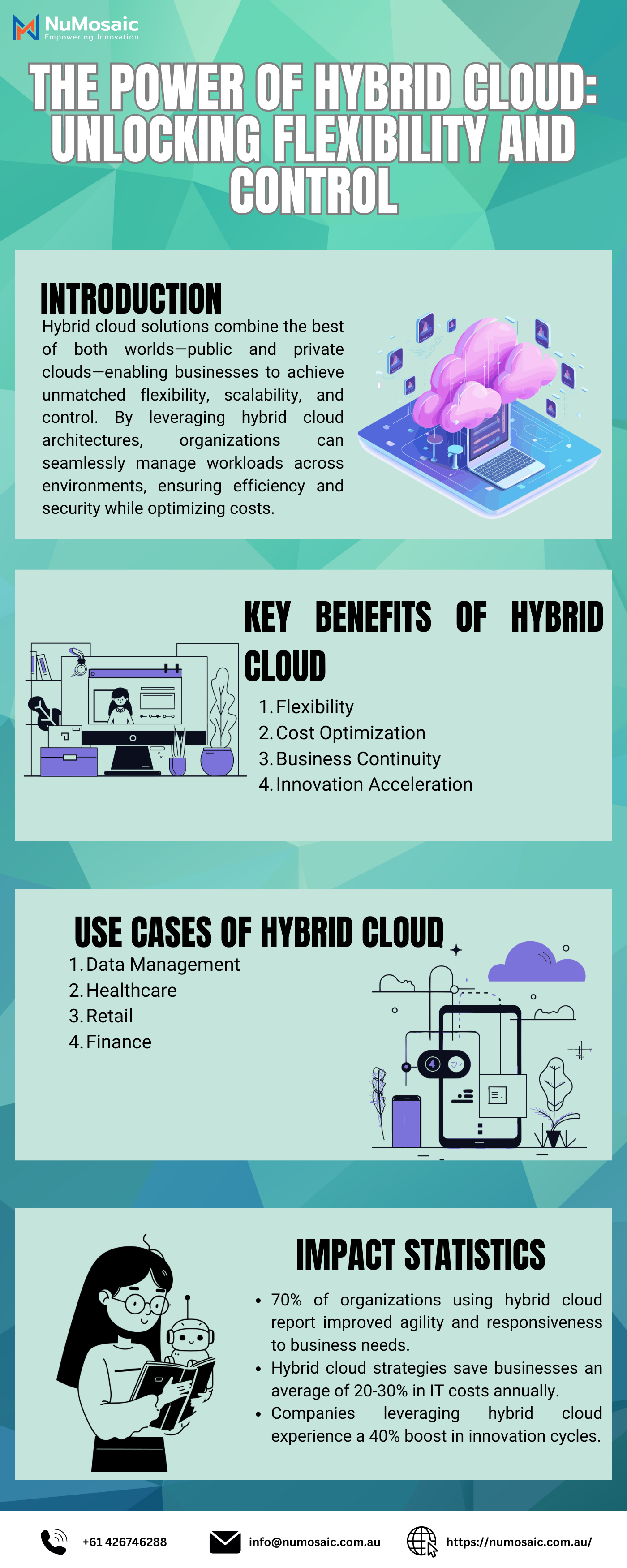In today’s fast-evolving digital landscape, businesses face a growing demand for agility, scalability, and control over their IT resources. The hybrid cloud model has emerged as a transformative solution, offering the best of both worlds: the scalability of the public cloud and the control of the private cloud. Let’s delve into how the hybrid cloud empowers organizations to achieve unmatched flexibility and control.
What is Hybrid Cloud?
Hybrid cloud refers to an IT architecture that integrates private cloud environments, on-premises infrastructure, and public cloud services. This seamless integration allows businesses to balance workloads, optimize resources, and ensure data security, all while maintaining flexibility.
Flexibility for Diverse Workloads:
One of the standout benefits of a hybrid-cloud is its adaptability. Organizations can deploy workloads across different environments based on their unique requirements:
- Public Cloud: Ideal for dynamic workloads, such as application development and testing, where scalability is crucial.
- Private Cloud: Suited for workloads that require strict security and compliance, such as sensitive customer data or regulated financial transactions.
This flexibility allows businesses to respond quickly to market changes and scale their operations efficiently.
Enhanced Control and Security:
A hybrid cloud ensures that businesses retain control over critical operations and data. By keeping sensitive data and workloads in private environments while leveraging the scalability of public clouds, organizations can mitigate risks. Additionally, The solutions often include advanced security measures such as encryption, identity management, and compliance tools.
Cost Optimization:
With a hybridcloud, businesses can optimize costs by using the public cloud for non-critical workloads and reserving private infrastructure for mission-critical operations. This approach minimizes unnecessary expenses while maximizing resource efficiency.
Driving Innovation and Performance:
A hybrid cloud fosters innovation by enabling businesses to experiment with emerging technologies, such as AI and machine learning, without compromising core operations. It also enhances performance by allowing data and applications to reside in the most optimal environment.
Future-Proofing IT Strategies:
As technology evolves, the hybrid cloud provides a flexible foundation for incorporating new tools and services. Businesses can future-proof their IT strategies by adapting to new requirements without overhauling their infrastructure.

